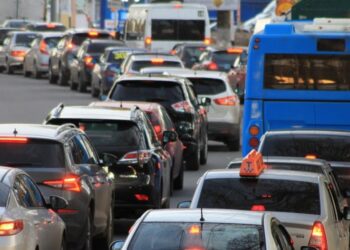The petrol vs diesel debate has enthused and confused drivers for decades – and has been little helped by growing air quality concerns. However, diesel is far from dead and in some instances still remains the obvious choice for some drivers depending on a number of practical factors – not just personal preference. Our in-depth comparison examines the performance and driving style of both engines, along with the many cost and environmental factors associated with them to help you make the right choice.
Performance and driving
Here we look at where you drive, how you use your car and what do you use it for to find out what type of fuel best suits your needs.
a. How do they differ in performance?
Traditionally petrol is usually seen as a smoother drive with a sharper response and eagerness to rev, while diesels have better torque (pulling power), which makes a more relaxing drive. However, modern turbo-charged petrol engines offer plenty of low-down power, while the latest diesels respond – and sound – much like petrol engines. The clattering, agricultural diesels of old are long gone. Looking at the two from more of a generic point of view it can still be said that:
- Petrol engines need to be revved to give their best, so they suit a ‘sportier’ driving style – and, by extension, a manual gearbox.
- Diesels are best paired with the laid-back charms of an automatic box as generally speaking their better torque doesn’t lend itself to high revs in low gears.
That doesn’t mean petrol engines can’t be relaxing or diesels can’t be fun, there’s still more to consider, so let’s take a deeper look into things.
b. Do you use your car for highway driving or rural roads?
Diesels are great on highways, where their plentiful torque allows for swift overtaking. Furthermore, highway driving will tend to rack up the miles more than anywhere else meaning you’re better off with a diesel which will often return a better mpg (kml). Highway driving also lends itself to the type of driving needed to maintain a diesel particulate filter – more on this in the next section. On the other hand, driving on rural roads, will better suit a peppier petrol engine, which will likely offer a more rewarding driving experience and will be more suitable for quick acceleration when overtaking slower vehicles like tractors.
c. Do you more commonly drive long or short journeys?
Enter the dreaded diesel particulate filter issue. Diesel particulate filters (DPFs) represent a complicated topic but cannot be ignored and adds crucial weight to whether or not you should buy a diesel car. The long and short of the issue is, you must regularly run a diesel engine at high speeds for between 30 and 50 minutes to allow the exhaust temperature to increase enough to cleanly ‘burn off’ the excess soot in the filter and clear it – highway driving is ideal for this. Meaning for shorter journeys like to and from the shops, driving about town or if you have a shorter or slower-paced commute, a petrol engine will be more suitable. Diesel is also better for longer journeys because of it’s on-average increased fuel economy.
d. Country or city driving?
If most of your driving is in a city, think twice about opting for diesel. Stop-start traffic can clog diesel particulate filters (DPFs), leading to a potentially big bill for replacement. There is an ethical issue here, too. Older diesel engines emit higher quantities of nitrogen oxides (NOx) and microscopic particulates, which linger in the air and cause respiratory problems – a particular issue in cities, where air quality is considerably worse than in the countryside. Also, if most of your driving is done in the country then the muscular torque of a diesel is ideal for steep hills and tough terrain, including driving through mud or snow. Diesel engines also suit larger, heavier vehicles, such as 4x4s, which excel in such conditions.
Summary
| Petrol is better for: | Diesel is better for: |
| Short journeys | Highway driving |
| City driving | Long journeys |
| Hilly countryside driving | |
| Towing and commercial use |
Cost
While there are many more emotive factors such as driving fun or going green: for many, this decision comes down to cost. Here we examine all the costs associated with petrol and diesel cars, from the up front price of the car to insurance, tax, fuel economy, servicing costs and residual values.
a. Initial purchase costs
Diesel cars typically cost more than their petrol equivalents to buy. The higher cost of diesels is partly due to the extra tech needed to get them through emissions tests. However, it’s also because buyers are prepared to pay more – in the hope of recouping costs later.
b. Insurance
The higher purchase price of diesel cars, coupled with higher accident repair costs, can lead to increased insurance costs.
c. Car tax
In some jurisdictions, diesel cars may be taxed or incentivised based on carbon dioxide (CO2) emissions.
d. Economy
The pump-price of a litre of petrol is usually lower, but this is outweighed by the increased efficiency of most diesel engines over petrol units of a similar output. In short, that means more mpg (kml). This difference in economy is more pronounced in larger vehicles, such as luxury SUVs, where diesel is usually the default choice.
e. Servicing costs
It’s a mixed picture here. Diesel engines tend to have longer servicing intervals, but their added complexity can bump up costs – particularly if a DPF replacement is needed. For many modern diesels, you need to add in the cost of a fuel additive. This is used by diesel cars with selective catalytic reduction (SCR) emissions systems. We’d think twice about buying a high-mileage diesel car outside of warranty; any savings at the pumps could quickly be wiped out by higher garage bills.
f. Residual values
Diesel cars that cost more to buy will usually be worth a similar percentage more when they are resold.
Summary
| Costs | Cheapest fuel type |
| Initial purchase costs | Petrol |
| Insurance premiums | Petrol |
| Car tax | Even |
| Economy | Diesel |
| Servicing costs | Petrol |
| Residual values | Diesel |
Verdict
It’s not possible to provide a definitive verdict on the petrol vs diesel debate, as the decision is down to the driver and how they use their vehicle. However, we hope the advice we have given throughout this article will help you make an informed decision. It is important to look at all of the criteria above and carefully consider what your driving needs are and how you are going to use your vehicle before making your purchase. It is also important too, not to be bullied into buying petrol by the media’s perceived ‘war on diesel’.
While the air quality debate is well worth factoring in, it is still advisable to weigh up all of your options, looking at all of the above factors without any preconceptions of what you should drive, before you choose to buy. As a general rule of thumb, when buying small, mid-size cars or sports cars most people opt for a petrol engine, and when buying large cars and SUVs most people opt for a diesel as each engine is generally speaking better suited to these types of cars.
However, with the development of modern technology such as hybrid and plug-in hybrid electric vehicles, much depends on the specific make and model of the car and the range of other factors we looked into above. It is more important than ever to carefully consider the type of driving you do and get expert advice before making a choice.
The expression ‘do the maths’ is very apt when it comes to choosing between petrol and diesel cars. Petrol cars are usually cheaper to buy, and you’ll pay less at the pumps for a litre of unleaded. Diesel offers better fuel economy (typically 15-20mpg (6.4-8.5kml) on a family car) and lower car tax. Which one costs less overall depends primarily on how long you plan to keep the car.


































































































































































































